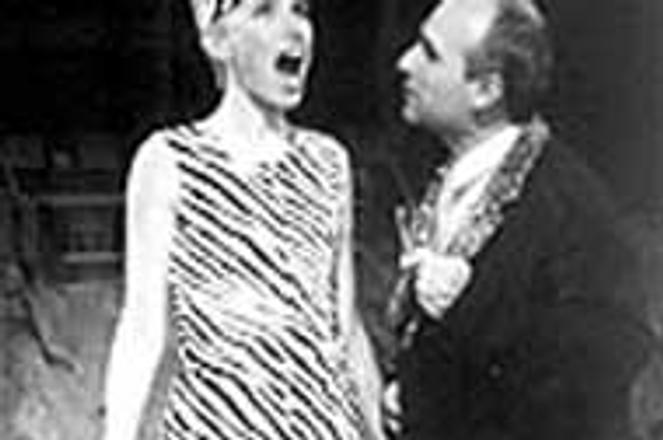Stoka, one of Slovakia's independent theatres, is suffering financially this year. Located in the Bratislava city center, this stage attracts many to see its experimental and innovative performances. Since its founding in 1991, Stoka has succeed in developing into a thriving but not lucrative business.
Stoka was supported at the beginning of its history by a state fund called Pro Slovakia. When support was cut off under former Minister of Culture Ivan Hudec in 1994, Stoka began to take donations from Swiss cultural foundation Pro Helvetia, well-known for its grants of many Slovak cultural organisations in the same situation.
Though it is called an independent theater, Stoka and seven other theatres in the same position are raising the question of why they should be scraping for money outside the country for money when other, often less popular state theatres receive funding from the government. At stake is the issue of who is really carrying the banner of Slovak art into the future, they say.
The Association of Independent Theatres, founded on February 5 this year, is asking the government for 8 million Sk, an amount they based on their current operating expenses. Though the theatres are expecting more money from the new government, they need the money to tide them over for the next couple of months, they say.
"The budget for theatres supported by state is more than half billion crowns for 1999," said Blaho Uhlár, director of Stoka and the new association. He added that 8 million Sk seemed to him a reasonable request.
Apart from the money, the Association wants to change the Ministry view on supporting state theatres and independent ones, he explained. State theatres receive support regardless to their artistic results, size of audiences, or work. On the other hand, some independent theatres are highly successful in Slovakia and at many international festivals. Moreover they have large audiences, honoured plays , and also are well considered among the theatre professionals. These reasons lead to an equality with other professional theatres, he said.
"There are many criteria for what is really good theatre. The Slovak theatrical community is wide and professional, and able to recognise this, " he said.
Radošinské Naivné Divadlo, one of the Association theatres, has been performing for 35 years without direct support from the state. Today people are still queuing for tickets for long hours. On the other hand, empty state theatres are being fully funded, added Uhlár.
In terms of independence, Uhlár explained that they are trying to get sponsors, but scraping for change is not the theatre's strongest suit. The theatres are not used to that, as they just think about the art, he said.
Viliam Klimáček, the director of the Gunagu Theatre, another alternative independent stage in Bratislava, has run successfully for 15 years. Though the theatre is given its space rent-free from the City Cultural Centre, the situation is not developing for the better.
"We earn money for the city and we are not given any money for art production", he stated.
Uhlár said that the ministry has promised money for the year 2000. But that is too far away for the independent theatres, he said.
"It is only a promise. The reason is that they don't have money. A radical solution is needed as these 24 state theatres (are just getting worse) like a cancer."
"It seems to me that situation is parallel to the Slovak economy with the state just preserving artificially some kind of employment," he said.
"The Ministry of Culture should just create an independent jury on particular theatre projects or should run a grant system for theatre production", Klimáček said.
Author: Soňa Bellušova


